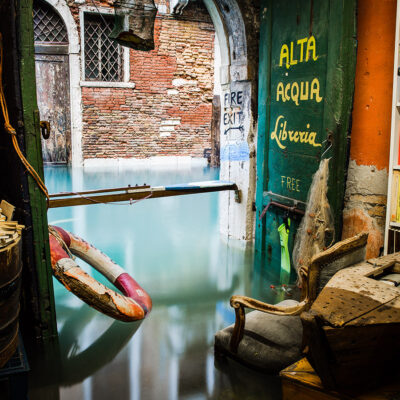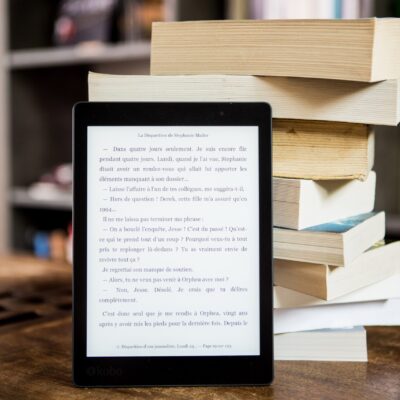In Ascension by Martin MacInnes
In Ascension is an extraordinary science fiction novel that celebrates the wonders of the universe and efforts to explore it. Published in the UK by Atlantic Books and in the US by Grove Atlantic, it has won in 2023, The Saltire Society Book of the Year and Blackwell’s Book of the Year, and in 2024, the Arthur C. Clark Award for the Science Fiction Book of the Year . In addition, it was longlisted for the 2023 Booker Prize. A bookseller from Blackwell’s Oxford in the UK described it as “a science fiction novel fit for the 21st century” adding that it was “beautifully written, balancing science, psychology and philosophy with a sense of wonder, and just enough ambiguity to keep you thinking about these big questions long after you finish reading it”.
The novel takes place in the near future and tells the story of Leigh Hasenbosch, who grew up in Rotterdam. The city has built an elaborate network of dikes, dams, and other barriers to hold back rising sea levels. Leigh tells us that:
I was born in the lowest part of the country, 22 feet beneath the sea. When my sister arrived three years later we moved south into the city proper, Rotterdam’s northern district. The land was newly excavated, freshly claimed from the seafloor, dredged by ships and reinforced by concrete. Parts of the street came loose, the ground underneath still soft. I remember burning incense, a brackish smell indoors, as if every moment were a spell. A scene that had to be called into being.
The river beach was artificial, and when we walked over it I imagined underneath us was a hollow area, a huge chasm. We went there on weekends and on holidays, my father paying careful attention to the tides, never settling in one place but marching from one direction to another. I poured sand into my plastic bucket, compacted it, upturned it, did it again and again. ‘Don’t dig too deep,’ my father warned, before turning his vigilance back to the water. [p.3]
In an interview, Martin MacInnes, summarizes Leigh’s personal journey from a difficult childhood to becoming a specialist in marine biology, from exploring deep sea trenches to explorations to the far reaches of outer space. At nine years old, constantly abused by her father, Leigh swims out into a body of water aware that if she drowns, she will never have to return to the hellish conditions of her home life. This is a significant scene, an especially important moment in a very important book. It is the moment where the course of Leigh’s life begins. It is a moment of despair and one of transformation. In this moment of complete desolation, with great wonder, Leigh suddenly realizes the existence of the fullness of the life around her and she finds that exhilarating. She comes out of the water with a drive to pursue that fascination. That moment never really leaves her. There is something astronauts refer to as the ‘overview effect,’ the first moment when they can see the whole earth from space, and they suddenly realize the silly arbitrary divisions that we impose between countries or between species. They have talked about how this moment has changed them and the way they behave when they return to earth. This moment is similar to what happens to Leigh and explains her compulsive interest in microbiology, in what composes life, in what composes cells. It is not only strict academic remote interest, but also something that has given her life. Others may view her fascination with the natural world as a selfishness and indeed as the novel continues, her sister Helena describes her in that way. But this is her lifeline; it has sustained her. She does feel guilty about that but also an embracing of that is always with her. She must maintain her profound sense of being connected to nature. She is aware of her smallness but also her centrality because she is the one who is perceiving it all.
Leigh goes to University in Rotterdam to study marine ecology and microbiology before attending the Max Planck Institute for graduate school. Enchanted by the undersea world of her childhood, she excels in marine biology. She takes a position on a survey ship called the Endeavour exploring the seabed of the Atlantic Ocean. This voyage uncovers an anomaly: a huge cavity in the mid-ocean floor, a crater so deep that the scientists assume their measuring equipment must be malfunctioning. Exploratory dives in the area result in strange, inexplicable consequences: there is an odd light; divers fall ill; Leigh experiences unexpected bliss as described below.
I swallowed oxygen, tested and flexed limbs, told myself relax, you’ve done this a thousand times before. Then something strange happened, as everything became easy, generous. I was no longer moving myself; I was carried. My voice became quiet, echoing further and further away. A diver’s dark silhouette spun slowly down, tumbling until it disappeared. The disappearance calmed me. Everything was perfectly still and quiet. My heart rate dropped, I stopped hearing my breath’s repetition. I lost myself into a wide, vast warmth, a wholly enveloping medium. Suddenly the sea was bright with colour, as life surged: a purple and yellow sea lily uncrushed itself, pushing away water in a spray; red-tipped tubeworms undulated successively like the drift of a breeze over a wheat field, a thought unfurling across a bed of neurons; jets of bio-light glowed and pulsed, as outlines of animals burst in rapturous communication then disappeared again into the darkness; transparent cephalopods hung suspended in an immensity; bacterial symbionts draining and nourishing everything; archaea under it, at the heart of it, crawling, synthesizing, stretching back, inexpressible return — [p.82]

Just when you cannot imagine this novel becoming more fascinating, the story turns from sea to space exploration. Leigh is recruited by the Institute for Co-ordinated Research in Space because she has developed algae that might be a sustainable resource. Leigh describes her unique environment at Goldstone Observatory in the middle of the Mojave Desert as a poet would, with a child’s fascination.
The antennas seemed mysterious, impenetrable, though I knew more or less what they did: sweep the skies, receive transmissions from spacecraft. But the reality here on the ground was different. The discs were monolithic, inscrutable, quite beautifully sculpted. They looked devotional, built in praise, which I supposed they were. The soft, curved white parabolas were like a pale opened hand, waiting to catch something, pass something on. The container, the object of infinite purpose and adaptability, the thing that enabled other things. A cup, a bowl, an opened hand. A vessel can contain almost anything; so can language. There was no limit to the purpose it might serve. [p. 205]

Martin MacInnes has written two previous novels: Infinite Ground, which won the 2017 Somerset Maugham Award and Gathering Evidence. In addition to previously mentioned awards, he has also been awarded the Scottish Book Trust New Writers Award for 2014 and the Manchester Fiction Prize for 2014. In an interview in 2023, the author stated that he works hard at getting the right balance between mystery and revelation.
As a reader, it is something I prize – an irresolvable quality, a lasting strangeness. I don’t want to finish a novel and feel that everything is completed, settled, the experience over. I want to continue living with the books I love most.
I appreciate it’s a difficult balance to achieve, and I know I don’t always do so. Of course I want a reader to feel satisfied at the end, and I take this responsibility seriously; you’ve taken them, hopefully, on a journey that they’re invested in, and so the ending matters. But I have to write something that is faithful to my experience of the world, and so the last thing I am going to do is explain it all away. As my protagonist Leigh says in the first part of the book: ‘the world is not reasonable, and can never be made reasonable. It is much more interesting than that.’
I am so grateful to Martin MacInnes for writing In Ascension; for his ability to inspire in me a sense of awe and wonder. I now have more questions than answers, but that is a good thing! This is why I am addicted to reading! I keep discovering books that make me more empathetic, more curious, less cynical, less simplistic. In the words of S.I. Hayakawa: “It is not true that ‘we have only one life to live’; if we can read, we can live as many more lives and as many kinds of lives as we wish.”

Check Amazon for more on this book I love.
















